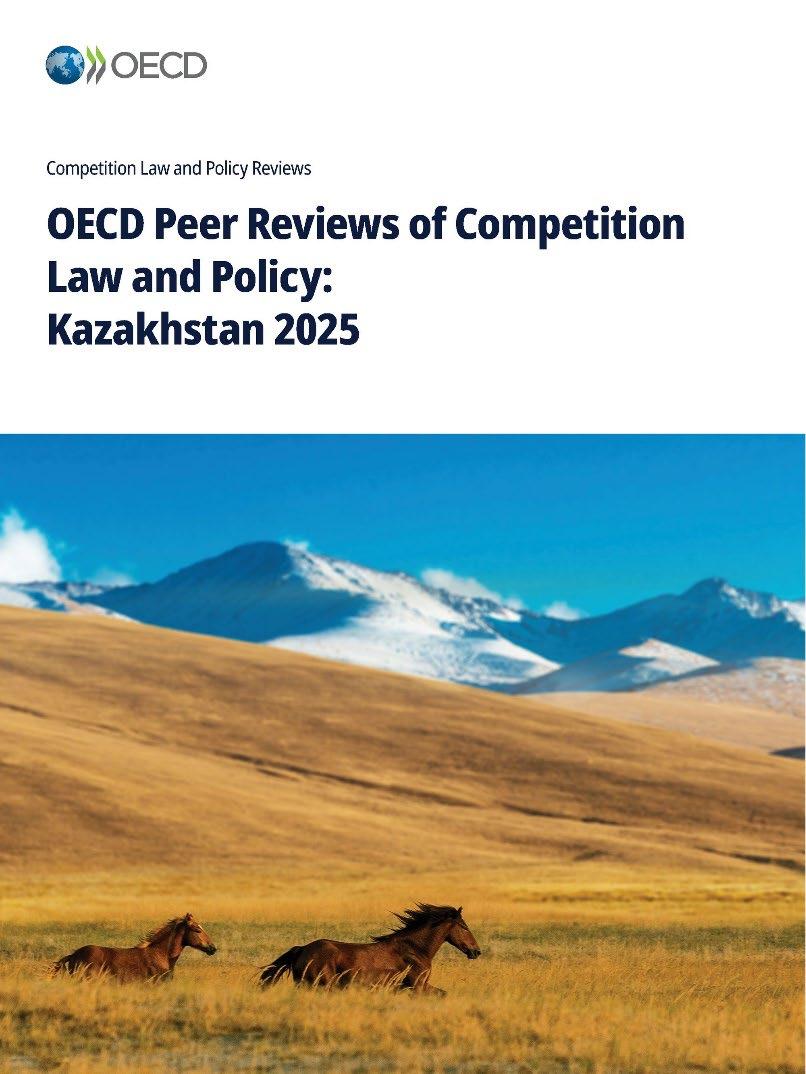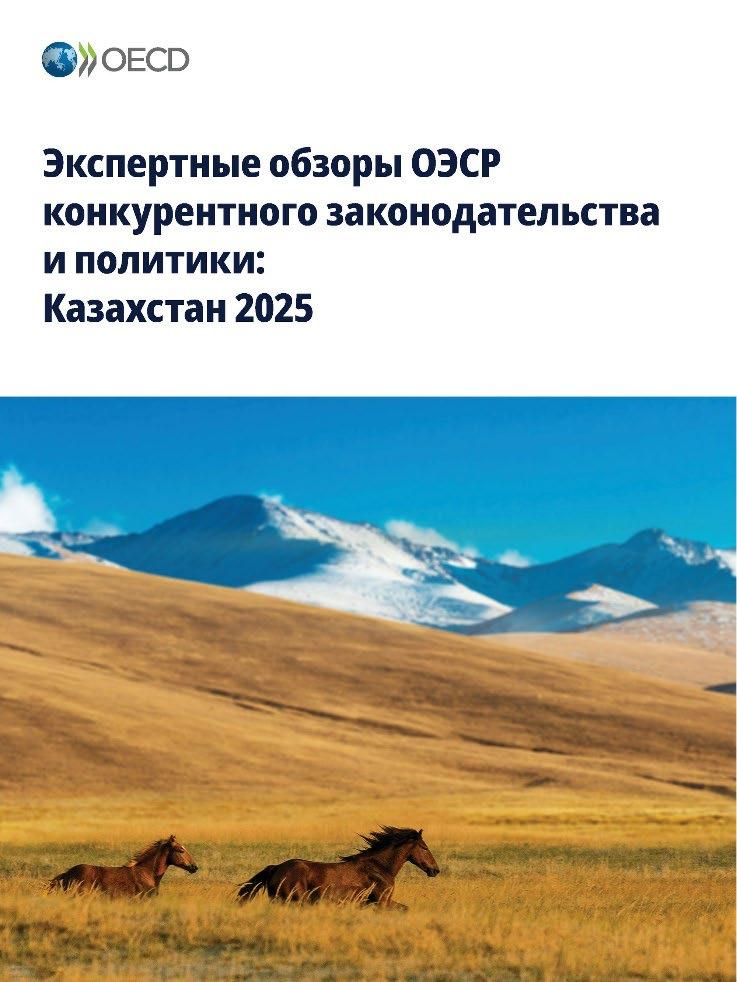OECD Peer Reviews of Competition Law and Policy: Kazakhstan 2025

Launch of the Kazakhstan Peer Review Almaty, 17 November 2025
Ania Thiemann, Competition Expert




Launch of the Kazakhstan Peer Review Almaty, 17 November 2025
Ania Thiemann, Competition Expert


Significant reforms across the competition framework
Strong political recognition of the importance of competition
Continued modernisation of legal and institutional structures
Peer Review as a tool for shared learning and further strengthening OECD commends the Agency for its openness and cooperation
Ongoing efforts to enhance operational independence
Chair and Deputy Chairs appointed by the President
Length of mandate uncertain
Rules for appointment/ dismissal could be clarified
Mandate has broadened
Privatisation
Monitoring procurement of medicines and medical equipment
Continued focus on building analytical and investigative capacity
Core enforcement and other functions appear to be on equal level
Prioritisation of tasks or cases is still missing
Licensing and surveillance of commodity markets
Price control in several markets
The economy features important state actors in key sectors, such as state monopolies and special rights (single operators)
Growing list of single operators; this may undermine competition dynamics, for instance in public tenders and procurement
Reforms have been introduced to improve transparency and oversight
Competitive neutrality is increasingly recognised as a policy priority as SOEs continue to hold important presence in the economy
Agency tasked with price control which uses up valuable internal resources
Important recent shift towards greater use of ex-post merger control
Very short statutory timelines challenge an in-depth competitive assessment of the merger’s impact
Phase I reviews often handled by a single staff member
Limited scope to conduct a full Phase II analysis within current deadlines, leading to few prohibitions or conditional approvals
There would be real opportunity to strengthen the system by focusing on a highimpact case
Enforcement operates under very tight statutory timelines
Investigations typically conducted in 3-6 months, appeals in 2-6 months
Very high number of cartels cases and dawn raids by international comparison
Mandatory market studies add additional step before case opening
Methodology is legally binding, limiting flexibility
Focus on structural indicators
Evidentiary basis needs developing
Staff fully dedicated to enforcement remain limited
Resources fragmented across tasks
Opportunity to strengthen co-ordination between study, advocacy and enforcement functions
No leniency applications ever submitted
Programme applies only to administrative liability, not to criminal or other types of liability and conditions are strict
Courts now required to grant immunity if conditions met, but uncertainty remains
Value in raising awareness among companies and legal practitioners
Alignment with international good practice enhances effectiveness
Growing recognition of the important of role of competition for policy making
Agency conducts market studies regularly, creating valuable market insights
Methodology provides consistency, but limited flexibility for case-specific analysis
Opportunity to improve and deepen advocacy across ministries and regulators
Opportunity to improve transparency by publishing decisions in full, as well as market studies
Active participation in international fora (OECD, UNCTAD, ICN, EEC, regional initiatives)
Engagement supports learning from and sharing global experience
Alignment with international standards strengthens predictability
Opportunity to deepen cross-border co-operation in enforcement
• Twinning arrangements with other agencies would support a strengthening of capacity
Peer Reviews (2016, 2025) contribute to continuous improvement
• Kazakhstan has made notable progress since 2016
• Strong foundations for further strengthening
• OECD appreciates the Agency’s openness and co -operation throughout the entire process
• Peer Review serves as a roadmap for continued modernisation
• Looking forward to continued collaboration



